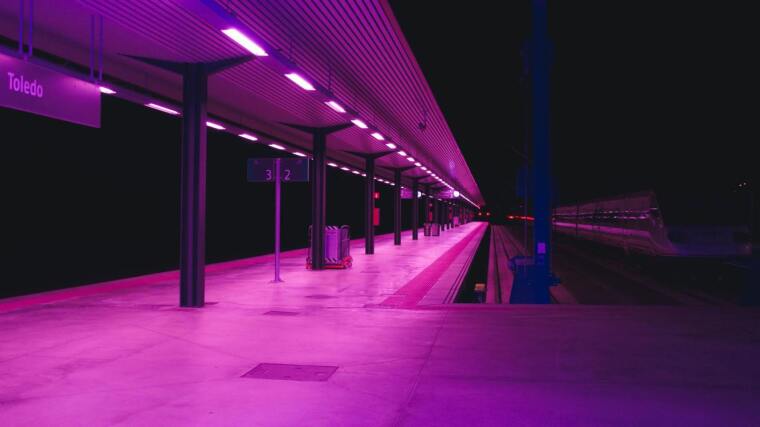
This area of research focuses on geographical concepts, ideas, imaginations and narratives with a socio-philosophical foundation. Using the philosophical and methodological instruments of the history of ideas (Ideengeschichte), history of concepts (Begriffsgeschichte) and history of disciplines (Disziplingeschichte), research in this field comprises firstly, a critical exploration of the history of geographic thought. Research in this vein is guided by the question how secularization has affected the production of geographical knowledge. Secondly, research in this area if research focuses on contemporary geosociotechnical imaginations (e.g. geoengineering, space travel) are analyzed from a critical (ideological/narratological) perspective. Objects of our studies are imaginations and narratives that on the one hand relate to the persistence of existential and geosocial life on the habitable earth and on the other hand are embedded in (trans-/inter-)nationalist and geopolitical narratives.
Contributors:
Current projects
-
Critical Geopolitics: Sociotechnical Imaginaries in the Anthropocene
Learn moreThe project is currently in the planning stage. The aim is to explore the imaginative content of socio-technical systems such as explorative space travel or nuclear power for collective world imaginings (worlding).
-
Critical Geopolitics: Community Narratives in the Context of China's Belt & Road Initiative
Learn moreThe research project examines geographies of the future of the Belt and Road Initiative (BRI) ("New Silk Roads") geopolitical narrative. The project aims to make an empirical contribution to the time-agnostic understanding of contemporary geographies of the future of the BRI. By examining the global socio-material transformation processes generated by the BRI, a better understanding of the temporal and geographical (de)stabilisation mechanisms, modes of operation and implications of the BRI will be gained. The overarching question of the research project is how the imaginaries of future geographical presences are configured and de/stabilised in their entanglement with the materialities of present futures of the BRI in practices of logistics and the (occupational) biographies that are formed in and around them. This makes a theoretical contribution to understanding the narratives and imaginaries of the BRI as produced in a 'geopolitics from below'. The field of investigation is the logistics industry and its living environments in the networked "global logistic cities" of Hamburg and Shanghai. Empirically, the overarching question is firstly related to the imaginings of future geographical presences of the BRI. The question is how (professional) biographies of middle management employees are imaginatively de/stabilised in and through logistics practices. Methodologically, narrative-biographical interviews will be conducted. Secondly, the lifeworld embedding of the materiality of current geographical futures of the BRI in Hamburg and Shanghai will be investigated. It will be asked how the BRI as an everyday geopolitical imagination is reflected in its material presence in practices of biographising. Methodologically, a set of ethnographic in-situ techniques will be used. In the evaluation, practices of biographising function as a hinge for the analytical integration of the research perspectives. This will also make a methodological contribution to the further development of social science approaches to biographical research based on practice and spatial theory.
-
Political Theory and Geography: Theoretical contributions on anarchist theory, critical phenomenology, political theology and political economy
Learn moreWith recourse to the history of ideas in geography and with a proximity to hermeneutic and phenomenological approaches, a critical geography of the social is being conceptually developed further. Of particular interest are political philosophy and theology in order to explore the intersections between atmopolitics, biopolitics, geopolitics and pyropolitics in the Anthropocene/Capitalocene and to make it fruitful for progressive perspectives and critical geographies.
-
Critical geophilosophy/theology: Secularization of Geographic Thought in the Planetary Age
Based on the thesis that the secularization of geographical ideas is not a completed process, the first step of this project is to determine the relationship between geography and theology in terms of a history of concepts and the history of ideas and, in a second step, to apply a transformation model of secularization (cf. Taylor 2007) by invoking discourses on the Anthropocene and planetary thinking (Runkel 2024; Runkel 2025). This is followed, thirdly, by a metaphorological discussion of the discourses of planetary thinking following the philosopher Hans Blumenberg and, fourthly, by a reappraisal of geotheological discourses that are gaining renewed importance (‚thin geopolitics’, Toal 2016) as a result of the global Zeitenwende. Further work is planned using the methods of the history of ideas and the history of concepts as well as metaphor analysis (e.g. ‚garden‘ metaphors in the planetary age, political phenomenology of fire). Ultimately, the long-term goal of the current project is to contribute to the development of a subaltern (geo-)political theology that is decidedly critical of domination, anti-feminism, anti-Semitism, fascism and racism and thus contributes to a caring, interreligious and global understanding.
-
Critical Geopolitics: Geosociotechnical Imaginations in the Anthropocene
The project is currently in the planning stage. The aim is to explore the imaginative content of socio-technical systems such as exploratory space travel or nuclear power.
Completed Projects
-
Critical Geopolitics: Community Narratives in the Context of the Chinese Belt & Road Initiative
This research project studies geographies of the future of the geopolitical narrative of the Belt and Road Initiative (BRI) (‚New Silk Roads‘). Thereby we ask how imaginations of the future are configured and de/stabilized in practices and biographical narrations of logistic workers in Shanghai and Hamburg and how these imaginations are entangled with specific logistic infrastructures (harbors, railroads, management facilities, etc.). By investigating the global socio-material transformation processes generated by the BRI, a better understanding of the temporal and geographical (de-)stabilization mechanisms, modes of operation and implications of the BRI is to be gained. The project thus aims at contributing to the time-agnostic understanding of contemporary geographies of the BRI by focusing on the mundane geopolitical practices of logistic workers (a ‚geopolitics from below'). Methodologically, narrative-biographical interviews are conducted and a set of ethnographic in-situ techniques employed.
Following three very well-reviewed, but ultimately rejected applications for third-party funding and the increasing complications for conducting social science research in China, this research project will no longer be pursued.